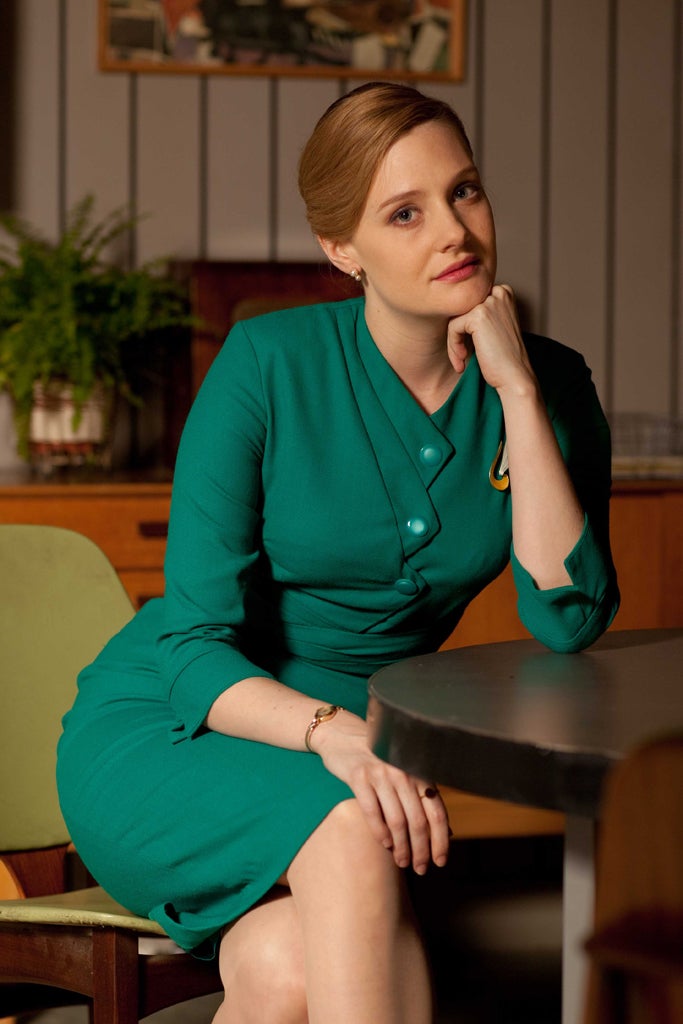First Night: The Hour - who can blame the BBC for wanting a little escapism
In Abi Morgan's Fifties drama the pressure to break big stories even as resources and budgets are shrinking struck some awkward resonances

Your support helps us to tell the story
From reproductive rights to climate change to Big Tech, The Independent is on the ground when the story is developing. Whether it's investigating the financials of Elon Musk's pro-Trump PAC or producing our latest documentary, 'The A Word', which shines a light on the American women fighting for reproductive rights, we know how important it is to parse out the facts from the messaging.
At such a critical moment in US history, we need reporters on the ground. Your donation allows us to keep sending journalists to speak to both sides of the story.
The Independent is trusted by Americans across the entire political spectrum. And unlike many other quality news outlets, we choose not to lock Americans out of our reporting and analysis with paywalls. We believe quality journalism should be available to everyone, paid for by those who can afford it.
Your support makes all the difference.It’s been a distressing and gruelling couple of weeks for anyone working in BBC Current Affairs. One could hardly blame them if, after days of coverage in which they provided the leading headlines, they decided to get away from it all with a bit of period escapism last night.
But you just have to hope that they didn’t turn to The Hour for distraction. Because the uncomfortable correspondences began about two seconds into Abi Morgan’s Fifties’ drama about the pioneering days of television, returning for its second series.
As Bel, The Hour’s producer, clutched her head in frustration her colleague Lix made a suggestion: “If it all gets really too much I say we get the next train to Morocco. Apparently it’s the most marvellous place to get lost”.
With more than one senior executive having proved tricky to reach in the last few days that line will have stirred a rueful response from some BBC foot soldiers.
Like another BBC flagship current affairs programme, The Hour has a new boss: “Ten minutes, ladies and gentlemen”, shouts Bel, rallying her colleagues to go on air, “We have a show starting and new Head of News to impress”. This is Randall Brown (Peter Capaldi), a news executive with an unusually philosophical approach to his job.
“All good art dies after a revolution”, he tells his uncertain team, “It is only when one is fighting to overcome any kind of oppression that real work, good work happens”. Bel isn’t convinced that Randall is right for the job but Lix tries to reassure her: “The thing is darling the powers that be must have some method to their madness”, she says (a line which may have been the cue for another hollow laugh).
Obviously there are places where the parallels won’t hold. At the end of the last series The Hour was in trouble because it had courageously talked truth to power at the height of the Suez Crisis, not because it had got a sensational story completely wrong.
It would also be pushing it a little to detect an echo of Exposure’s gallingly effective inheritance of the Jimmy Savile story in the arrival -- in the drama -- of a worrying new ITV rival called Uncovered (even if the similarities of the names of the programmes is intriguing).
But a plot built on the pressure to break big stories even as resources and budgets are shrinking couldn’t help but strike some awkward resonances. “You try running stories with a kick while levelling out those that cause too much of a ruckus”, complained Bel, after she’d met one of her ITV competitors at a party. Karen O’Connor, Newsnight’s acting editor, presumably knows what that feels like.

Watch Apple TV+ free for 7 days
New subscribers only. £8.99/mo. after free trial. Plan auto-renews until cancelled

Watch Apple TV+ free for 7 days
New subscribers only. £8.99/mo. after free trial. Plan auto-renews until cancelled
More seriously there is a sense that the romance that drives The Hour -- the race-to-deadline, uncover-the-dirty-secrets mystique that is a feature of all journalism dramas -- might not be entirely unrelated to the short cuts and mistakes that have left Newsnight and the BBC so damaged.
What you see on screen here is a fantasy of journalism, rather than the real thing, a world in which the incriminating proof is dropped into your hand by an obliging source and the Minister stammers at your probing question, rather than turning round and pointing out the errors.
It’s a fantasy in which a story can excitedly described as “Dynamite!” and nobody stops to think that dynamite can explode in your face. And for the many excellent BBC journalists currently having to live with the consequences of what happened on Newsnight that may be the most uncomfortable parallel of all.
Join our commenting forum
Join thought-provoking conversations, follow other Independent readers and see their replies
Comments